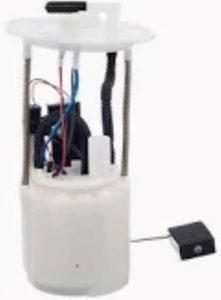The relevance of a fuel pump relay If ever you have a vehicle certainly there are appropriately a straight devices with your fuel measurements which is fuel pump relay. In a majority of vehicles, the relay itself is just an electrical switch that activates the fuel pump to pump fuel from the tank to the engine. Fuel pumps may not operate at the right time, or may not work when needed at all, if there is no working relay available, meaning there is a high chance the engine stalls or the vehicle fails to start.
When driving conditions are extreme or you just have that perfect tuned sport machine, the reliability of the fuel pump relay is necessary. For example, the fuel pump must react immediately to rapid acceleration or high-speed operation to keep performance up. According to a study performed by the National Institute for Automotive Service Excellence (ASE), 80 percent of fuel delivery problems are related to a bad relay or electrical connections. As you can imagine, this statistic signifies the relay's importance in ensuring consistent vehicle running, reducing the chance of fuel starvation that can cause catastrophic engine damage.
Fuel pump relays are made to handle the electric current that powers the petrol pump motor. This function is especially critical in modern fuel injected vehicles, where the precision of the delivered fuel strongly affects the vehicle's fuel consumption and emissions. In fuel injection systems, the relay controls a consistent fuel flow, and any lag in the response of the relay — or its malfunction — can lead to an instantaneous drop in fuel pressure that disrupts the air-fuel ratio and results in inefficient combustion.

When it comes to fuel pump relay longevity, this is an important factor for vehicles that are used in extreme temperatures or constantly as a relay will ultimately wear down quickly with constant on/off switching. Generally, fuel pump relays have a life span of 100,000 to 150,000 miles, based on conditions you drive your vehicle and how it is used. This lifespan is how long you can expect a driver or tech to be replacing relays right in line with standard maintenance cycles for long term vehicle reliability.
For example, a Motor Trend journal article publicized compensatory petitions, specifically a circumstance where malfunctioning gas push relays in some particular automobile designs created spontaneous shut downs, hindering motorist safety. This is where the need for periodic maintenance and inspection comes to play, and how important relays are for overall vehicle reliability.
Of course, with this knowledge, you might ask — what makes a fuel pump relay so valuable? Because they guarantee that fuel pumps activate only when they need to. They act as the entry to the fuel, controlling when and how fuel is access the engine. They are at risk of inconsistent fuel delivery, lower engine horsepower and even total engine failure should the relay fail to operate successfully.
If you're looking for consistent flow of fuel into your vehicles, quality components are key. Visit the Fuel Pump